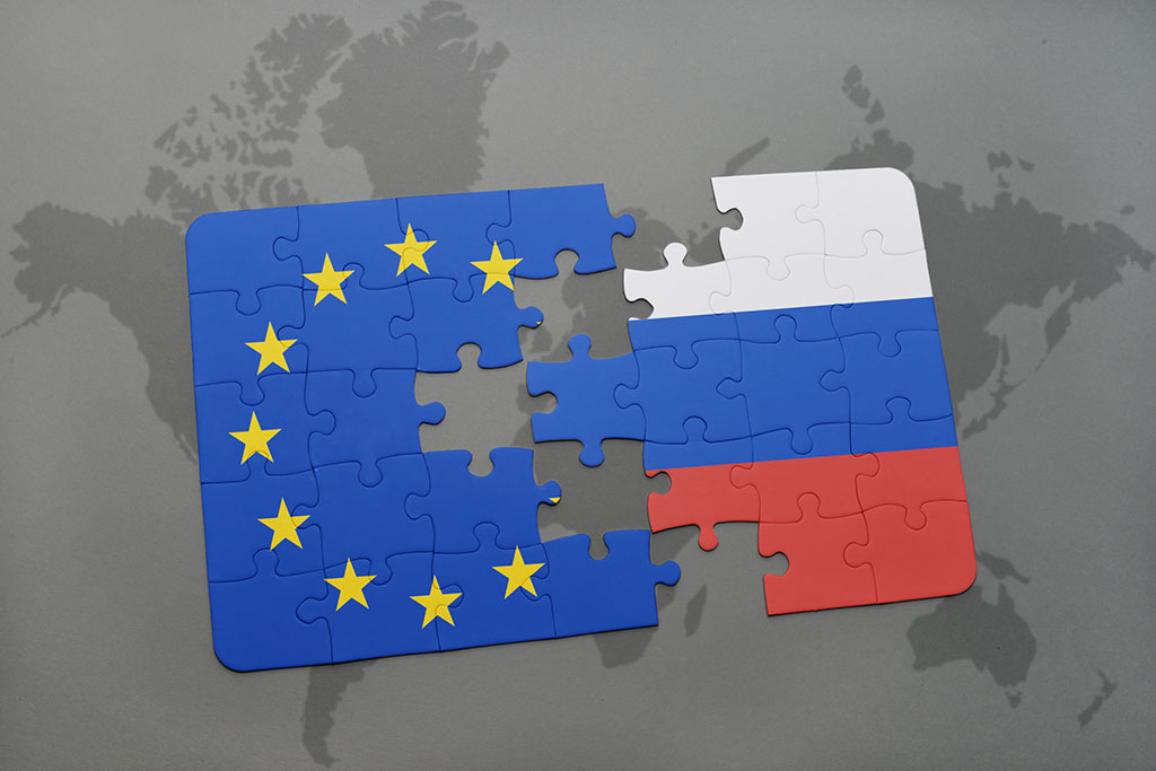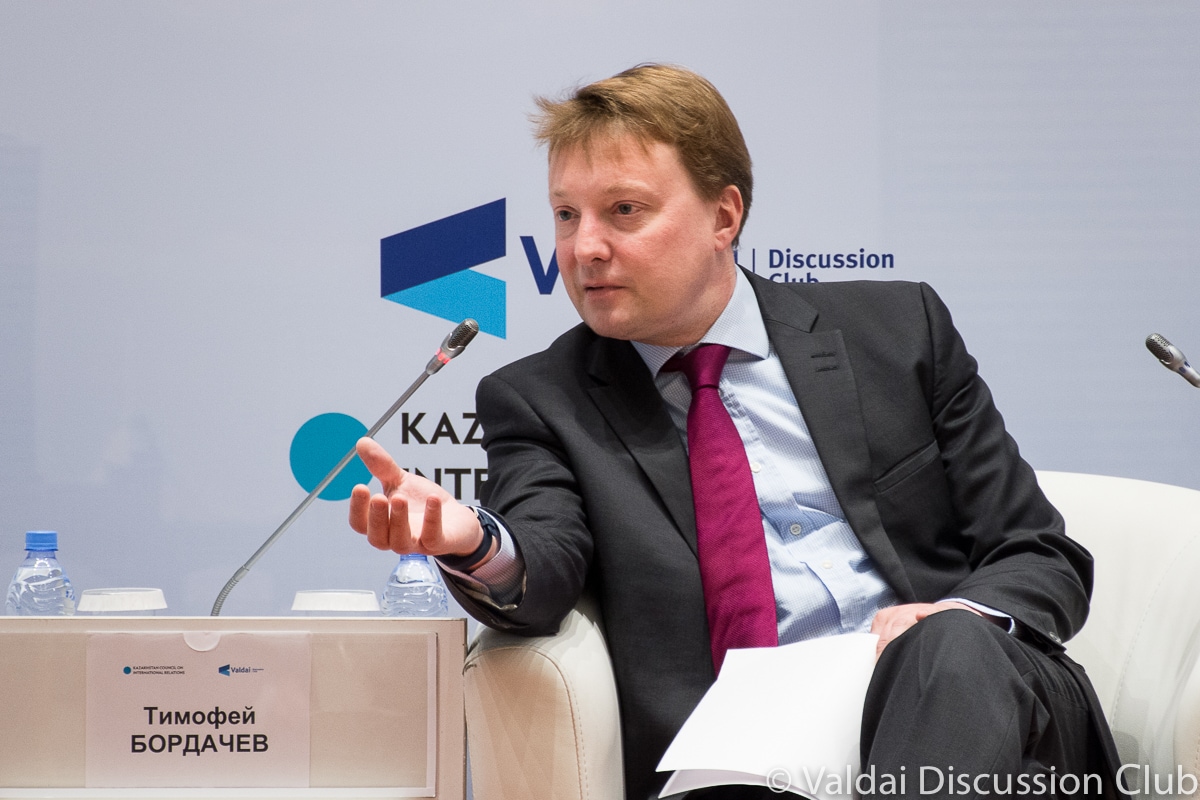Ahead of the election to the European Parliament, Russian expert Timofei Bordachev, Program Director of the Valdai Discussion Club, wrote an article, titled "What Can Russia Expect from a New Europe?", analyzing Russia-EU relations and the increasing power of right-wing populist parties in Europe.
Bordachev stressed that the EU is changing, since right-wing populist parties are replacing the "hypocritical Europe" of the elites. He stressed that European right wingers wants reforms, aimed at drastically reducing Brussels’ influence and renouncing political aspects of integration, which –according to Bordachev - will "finally" close down the aspiration of EU federalists to view the union as an "imperial project".
For Russia, Bordachev explained, an institutionally loose association of European states would mean greater freedom of maneuver for Russia in realizing its national goals in Europe. However, the Russian expert cautioned that, in order to deal with populist right-wing parties, Russia needed an entire paradigm change in its attitude to Europe and European nationalism based on the experience of WWII. "Russia’s relations with the "[EU] institutions and their elites have come to a deadlock and there seems to be no way out of it at this time. But is Russia ready for a dialogue with the forces that hold the memory of all those who perished in the most terrible war in European history – World War II, regardless of which side they were on?" Bordachev asked.
According to the Russian expert, if Russia is willing to hold a dialogue with populist right-wing parties for diplomatic or strategic reasons, it will have to undergo a "painful" reconstruction of the entire friend-or-foe approach that was forged in the fire of World War II. "If the European processes, that are gaining momentum now, prevail, soon we will have to extend our hand to the spiritual successors of those against whom our grandfathers fought at the frontline," Bordachev concluded.
Below are excerpts of Bordachev's article:[1]

(Source: Europarl.europa.eu)
The Crisis In Russian-EU Relations Has Largely Been Caused By A Conflict In Basic Values
"The crisis in Russian-European relations in the past few years has largely been caused by a conflict in basic values. The values that Europe has been increasingly accepting were not to Russia’s liking and vice versa. Moreover, the development of European integration caused distortions in its decision-making system, making Europe a somewhat uncomfortable partner. The anti-Nazi parties that came to power in the leading EU countries after World War II gradually developed into rigid elites and [a] bureaucracy. Talking to them became more difficult; they simply did not want to hear what Russia had to say.
SUPPORT OUR WORK

"Today, these distortions are likely to be corrected and the initial atmosphere of the holiday restored, at least to some extent. However, it is very difficult to predict the strategic consequences of this. This applies to Russia as well. Russia will have to reconsider some of its basic values, one of which is 'our Victory Day.' After all, the forces that are coming to power in European countries are much closer in spirit to those against whom the people of Russia fought the mortal struggle in 1941-1945.
"There can be two responses to this: we can either shut our eyes to the fact that hypocritical Europe is being replaced with nationalist Europe or accept it and calmly react to the manifestations of European politics that seemed to Russia absolutely unacceptable just several years ago. This change can be seen in the meeting of representatives of some right-wing parties, with the participation of the Marine Le Pen’s National Rally, which is friendly to Russia. It took place in Tallinn early last week and was hosted by the hospitable Estonian party EKRE, notorious for its anti-Russia statements.
European Right-Wingers' Reforms Will Finally Close Down The EU Issue As An Imperial Project
"The change is all the more topical since the elections to the European Parliament will take place in a couple of days, on May 27 and 28. These elections are likely to be important; for the first time, the opposition to the traditional European establishment will address voters with proposals on a radical reform of the EU rather than dismantling it… Importantly, the backbone of the future right-wing faction will be formed by deputies from large EU countries – the French National Rally (formerly Marine Le Pen’s National Front) and the Italian League – now the most influential party in the Apennines. This is no longer a joke, and they cannot be marginalized, as they have been in the past by the conventional elite…
"The issues raised by the European right-wingers may have decisive significance for the destiny of European integration. First and foremost, this is the position and role of the European Commission – the notorious organization of the so-called Euro bureaucrats. As the most desirable radical solution, the European right-wingers are proposing that the European Commission be eliminated altogether in its current form because it presents a threat to the real sovereignty of the EU member states. The alternative would be agencies to oversee the specific tasks based on instructions from the EU member countries. Even a slight step towards the implementation of this scenario would change the face of modern Europe beyond recognition.
"In addition, the European right parties are calling for meaningful rather than decorative reform of European immigration policy. Today, this is the most important demand of voters because it directly affects their security and values. Europe’s current immigration policy, or rather the lack of such policy, is simply a threat to its citizens.
"These reforms, aimed at drastically reducing Brussels’ influence and renouncing political aspects of integration, will finally close down the EU issue as an imperial project. This is very important from a strategic perspective, including to Russia. Prominent American historian Timothy Snyder wrote, indirectly, that to avoid their own radicalization, the leading European countries should be part of a larger association, a kind of an empire. This idea is nothing new. It is a version of the proposals made by Altierо Spinelli more than 70 years ago.
"Historically, Europe has generally been faced with a choice between two scenarios for unity. Let’s call them 'unity, Russo style' and 'unity, Hobbes style.' The former implies the voluntary unity of the European countries on the issues that do not violate their sovereign rights. This is the model that was the foundation of European integration initially and subjected to substantial distortion in the past 10-15 years. The latter model by Hobbes is the imperial form of association with a strong common center. For instance, Napoleon and Hitler tried to create such associations. The current European establishment was sitting comfortably under the wing of European bureaucracy and the practices imposed on it. The people were invited to enjoy the benefits of integrated life, free telephone roaming, and a celebration of Europe Day on May 9.

Timofei Bordachev (Source: Valdaiclub.com)
Russia’s Relations With The EU Elites Have Come To A Deadlock
"What will the start of Europe’s movement to a more democratic and institutionally loose association mean for Russia? In theory, it means greater freedom to maneuver in relations with the European states and the implementation of our national goals in Europe. But at the same time it could require a change in the entire paradigm of our attitude to Europe and European nationalism based on the experience of the Great Patriotic War. This may be painful for us but it is probably inevitable.
"The EU, in its current state, and NATO, both of which are hostile to Russia, are essentially anti-Nazi organizations aimed at suppressing any form of European nationalism in favor of the supra-national domination of Brussels or a personified domination of the US. Russia’s relations with these institutions and their elites have come to a deadlock and there seems to be no way out of it at this time. But is Russia ready for a dialogue with the forces that hold the memory of all those who perished in the most terrible war in European history – World War II, regardless of which side they were on?
"If Russia is willing to hold such a dialogue for diplomatic or strategic reasons, it will have to undergo a gradual and painful reconstruction of the entire friend-or-foe approach that was forged in the fire of the Great Patriotic War and World War II. Obviously, without US support, modern Europe cannot pose a military threat to Russia, as it did for centuries. But if the European processes that are gaining momentum now, prevail, soon we will have to extend our hand to the spiritual successors of those against whom our grandfathers fought at the frontline."
[1] Valdaiclub.com, May 20, 2019.




